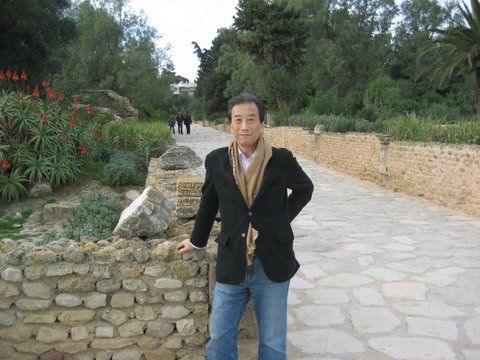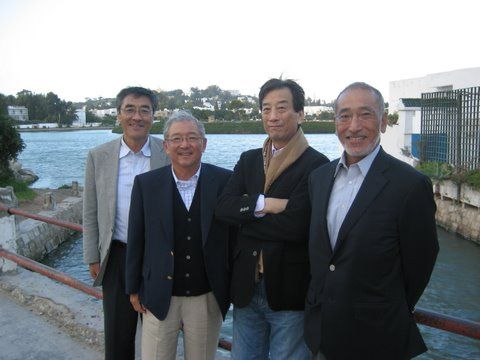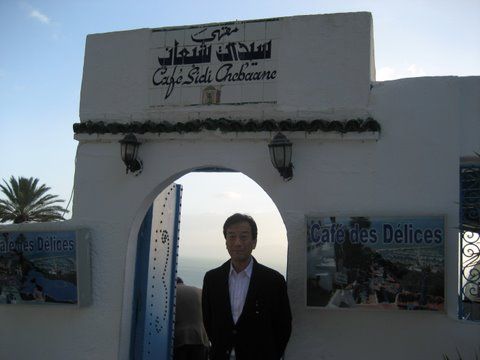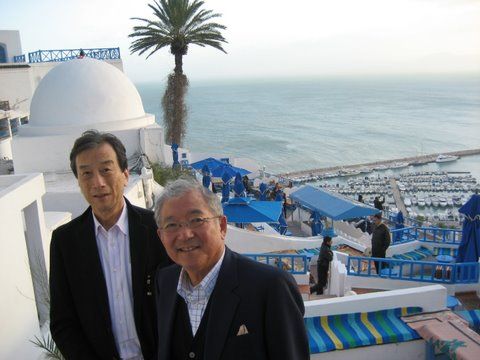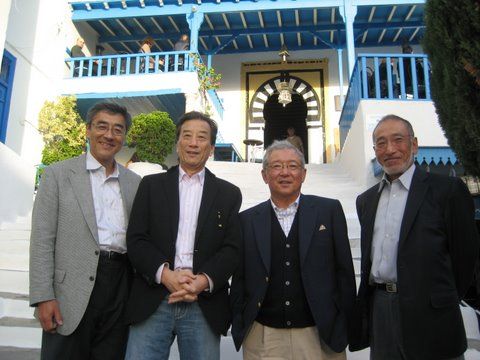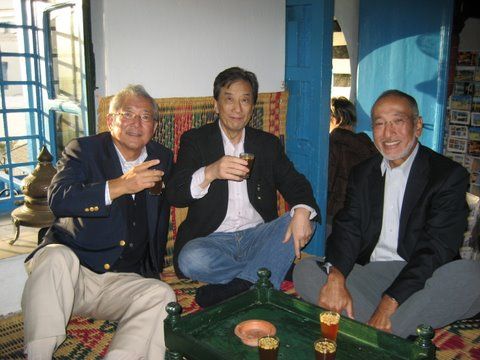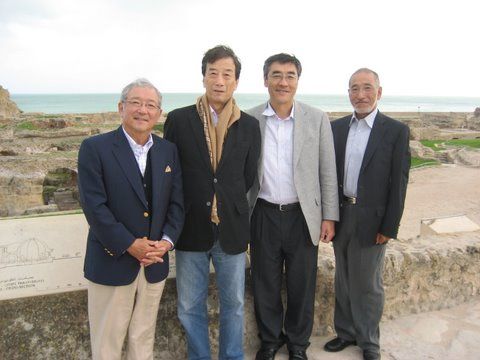In the evening of December10th, I left Narita via Dubai to Tunis in order to attend the 2nd Japan-Arab Economic Conference held in Tunis on the 11th and 12th. The arrival time at Tunis was shortly after noontime.
I felt a cool breeze as I left the airport, and I thought that Tunis was a nice place. Since I had seen H.E. Hatano, former ambassador to UAE, in Dubai, I headed directly to the Carthage remains from the airport. I enjoyed a nice tour with Mr. Ohashi, a long time expert of middle eastern business of Mitsui & Co. He kindly guided me around with a full explanation of the sites (he is quite informed about this area, and said that he recently stayed in Tunis for a week…)
Here, we encountered Mr. Ohata, Minister of Economy, Trade and Industry, and delegates.
After stopping by at several sight seeing spots, we arrived at Sidi Bou Said (Ref.1), our final destination. It was a lovely old town with white walls and beautiful blue windows and doors. We had tea at the so called oldest coffee shop in the world, relaxing, as the time went slowly by. Tunis is in the Mediterranean Culture zone, both geographically and historically. Time pass slowly here. I must admit that a workaholic lifestyle, competing only for higher GDPs, has some problems. Here, you can feel the long history of culture.
The reception was held at Ramada Hotel, the venue of the conference and our accommodation. About 300 people came for this conference from Japan. The head of the Japanese delegation was Mr. Okuda of Toyota, and I had the honor of seeing and greeting many leaders of Japanese business. Mr. Maehara, Minister of Foreign Affairs, also participated this year. I had an impression that many Japanese from business sector came to the reception.
The conference hall was packed the next day. It must have been hard to keep on schedule since there were many different sorts of people who gave speeches. It started with the Japanese Ministers Maehara and Ohata, and then the Ministers of Arabian countries and many important people gave speeches. I imagine that it was hard work for the secretariat. There were a number of collaborative projects were signed and announced, giving hope for a series of of good outcomes in coming years.
I tried to illustrate Japanese activities to the participants by briefly explaining relationships of Japan and Arabs. In these illustrations I included an introduction of the STS Forum, the panels on education, human resource development, science, and technology. After having a slightly late lunch, I packed my things and headed for the airport. I arrived at Doha via Dubai early in the morning of 12th.
Somehow, this travel was quite a busy one.
